I graduated in July 1981 and hoped to pursue some sort of career in agriculture, preferably in the developing world. With a BA in Development Studies this looked like a challenge. I applied to VSO but was turned down. In the meantime I did odd jobs and managed to continue to volunteer some time on Dev Farm and did have some casual work there from time to time, as a demonstrator (soils, and crop experiments) and to help Don Saunders relocate the farm from Colney to the new larger site over the Watton Road. I had managed to keep in touch with Adrian Friggins who was by then working in Burundi for Action Aid and Action Aid agreed to let me volunteer for them in return for bed and board. I raised some money and travelled to Bujumbura on Aeroflot via Moscow in August 1983. I assisted Martin Wallis and Adrian on training course for NGO workers, training oxen for primary cultivation (training the trainers) and supervised the manufacture of simple animal drawn tools in workshops. I had registered with DEV for an MPhil before leaving with a view of testing various combinations of harnesses and tools and surveying local farmers to assess their resources and interest in animal drawn technology. The political situation was tense with the Watutsi minority holding all the pollical and economic power and not too keen on me talking to poor Wahutu farmers so I made little progress with data collection. However, the experience was invaluable and potential employers and voluntary organisations took me much more seriously with a year’s experience in Africa on my CV.


On return to the UK I applied again to VSO and was offered a 2 year posting in Darfur, Sudan. However, in the meantime the Overseas Development Group won a contract to provide expertise to a Ford Foundation funded Farming Systems Research Project in Bangladesh, and I was offered a small bursary to join this project as a researcher with a view to investigate the modernisation of animal drawn technology. I left for Bangladesh in early 1986 and spent the next 18 months at the Bangladesh Agricultural University researching draught power shortages in Bangladesh. A shortage of feed for livestock had led to farmers using cows for work which had implications for milk and meat production and fertility. This became the main focus of my investigations, testing different means of maintaining production using innovative feeding systems. I was awarded a PhD by The University of East Anglia in 1987.


Later in 1987 I joined the Natural Resources Institute in Chatham (Overseas Development Administration’s [ODA] natural resources technical expertise) as a socio-economist, a permanent position in the FCO and a civil servant. There I supported scientists on a variety of projects and programmes at a time when social development advisors in ODA began to challenge the establishment in DFID (the macro-economists and scientists). Most of my work was livestock related with a focus on livestock keepers and the development of participatory methods to assist both poor farmers to articulate their preferences and inform scientists of their priorities.
Unfortunately, my father died suddenly in 1989 and I resigned my post and returned home to manage a small farm in Dorset for 2 years. However, I was able to maintain an association with NRI and worked for them for a further 20 years on an ad-hoc basis much of this work had a research focus and involved working in partnership with Universities and Research Institutes in Bangladesh, Uganda, Kenya, Ghana, Tanzania, India, and Pakistan mostly on research projects funded by DFID’s Renewable Natural Resources Research Strategy which ran for over 20 years up until 2006/7. I had the privilege to work with some exceptionally talented people from both the North and the South, some of whom remain friends to this day and with international organisations such as FAO, the European Commission, International Livestock Research Institute and several NGOs.

I was also fortunate over the years to be involved in some fascinating work such as preliminary surveys and discussions with farmers and hunters in Southern Nigeria where there was a plan to create a National Park in Cross River State. There was a need to limit shifting cultivation and hunting incursions into primary forest by local people which involved quite a lot of discussion sometimes in the “palavar” house, still very much in use in Cross River State. https://en.wikipedia.org/wiki/Cross_River_National_Park
I was part of a mission to seek alternatives to banana production for small farmers in the Windward islands in response to WTO challenges to existing preferential trade relationships with the UK – eventually resolved by the farmers becoming “Fair Trade” operators.
I am probably most proud of my small contribution to the Chars Livelihoods Programme on the riverine islands of the Jamuna River in Bangladesh, a large social protection and poverty reduction programme that ran from 2004 to 2016.
None of this would have possible without those formative years in DEV, on the farm, but also in the seminar room where I first encountered the participatory, and farmer first approaches as an undergraduate and post-graduate student.

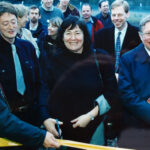
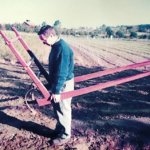
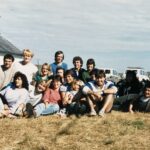
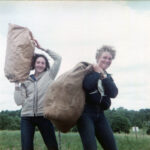

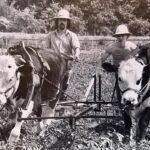
Leave a Reply